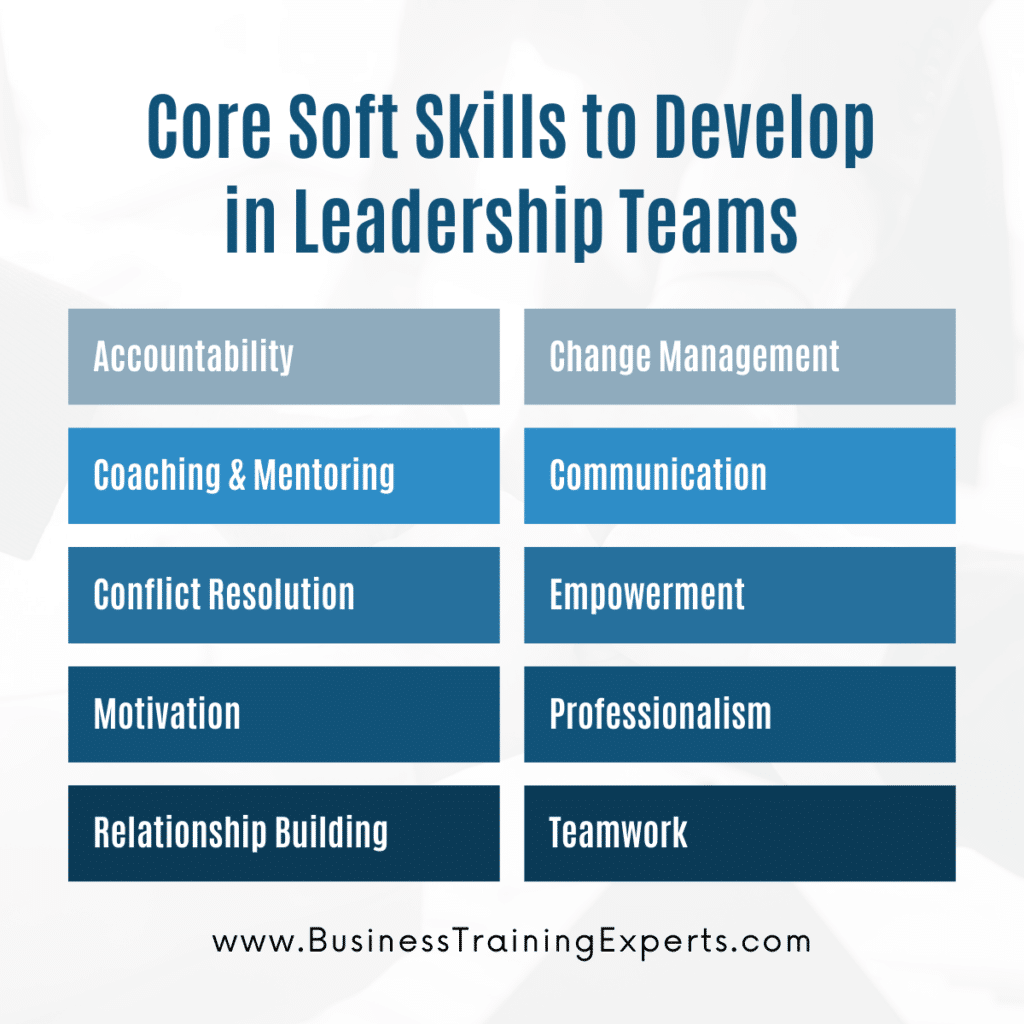
Supervisors and managers are often promoted based on their technical skills and job performance, not their leadership capabilities or potential.
If they’re not trained properly in both the hard and soft skills of effective leadership, they are likely to fail, bringing team member performance down with them and negatively impacting the company’s bottom line. Poor leaders can damage teamwork, morale, and productivity — and lead to costly turnover.

The Leadership Journey offers practical insights into soft skills like communicating effectively, handling conflict, and accountability, along with a focus on 10 critical core competencies that all effective leaders need. Leadership and teamwork training is crucial for driving performance and reaching organizational goals.
Your leadership team is one of your most valuable assets and they likely see your company the way you do. It’s important to get on the same page with them and focus on their development. The Leadership Journey will help you do just that.
Why Leadership Teams Matter?
Employees look to their leaders for goal-setting, guidance, and support. When leaders don’t have the skills or competencies to lead properly, teamwork suffers.
High-performing leaders ensure that team members are working effectively together to achieve desired goals. They offer coaching, counseling, and performance feedback to help keep the team on track and performing at a high level.
Leadership teams also need to perform consistently across departments and divisions. They need to understand the company’s goals and priorities, policies, practices, and procedures and take common approaches to driving team members to success.
Effective leaders are also able to innovate and produce superior results through others. They’re no longer doing—they’re leading. That requires a strong sense of accountability and the ability to build trust among their team members. This is done through a number of soft skills, especially management and communication.
Great leaders produce great results through others.
How to Develop Your Leadership Team?
Your leadership team is made up of a variety of individuals with varying levels of knowledge, skills, abilities, and backgrounds in leadership. In fact, in many organizations it’s common for leaders to be promoted from within. There can be many benefits to promoting from within both for employees and the organization.
However, one of the challenges is that in many cases these new leaders don’t have a formal background, training, or experience in leading others.
They may have been successful in an individual contributor role, but now they must get work done through others. That requires a combination of hard and soft skills required to achieve results.

Effective Management
Effective management is measured through results.
Ineffective leadership can lead to poor teamwork and poor performance. The result: conflict, poor morale, low productivity, and lack of engagement and loyalty among employees.
Supervisors and managers establish expectations and lead processes to help team members achieve desired results. They lay the foundation for team members to work effectively with each other, and members of other departments, to achieve common goals.
This requires strong communication, coaching, counseling, guidance, and feedback. Along the way, supervisors need to effectively handle conflict, manage change and build accountability and trust with and between their employees.
Problem Solving
Leaders need to be prepared to handle a wide range of circumstances that could derail their team members or cause them to be less effective and productive.
They need to be adept at working through others, building trust, and providing a safe environment where employees can excel. Ultimately, they are problem solvers.
Strong supervisors support the culture of the organization through consistent leadership, and understand the strengths and weaknesses of all individual team members. They create an environment that offers support and encouragement to build engagement and boost productivity.
Results
When it comes to effective leadership, results are what matter. Your leaders need to be adept at setting and meeting expectations—and leading their team members to contribute to department and organizational goals.
Your supervisors and managers are responsible for achieving results by leading others effectively.
Through a solid understanding of the organization’s culture, goals and objectives, and effective management, they drive results within a framework that supports all individual contributors. Most importantly, they are focused on achieving clear and measurable objectives aligned with organizational objectives.
In any organization, leaders matter. If your supervisors and managers don’t have the competencies they need to lead effectively, the entire company will suffer.
Don’t leave effective leadership to chance. Ensure that your leaders—both new and experienced—have an opportunity to participate in a leadership training course that will drive accountability, teamwork, and results.
